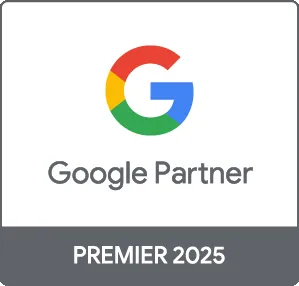In the competitive landscape of online advertising, effective budget optimization for Google Ads can significantly enhance your campaign's performance. In this guide, we’ll delve into essential strategies tailored for Johannesburg businesses to ensure you get the most out of your advertising spend. From understanding your goals to utilizing real-time data, these tactics will help you maximize your return on investment (ROI).
Understanding Your Goals
Before diving into budget optimization, it’s crucial to identify what you want to achieve with your Google Ads campaigns. Here are common goals:
- Increase Website Traffic: Drive more visitors to your site to boost conversions.
- Lead Generation: Attract potential customers to fill out contact forms or sign up for newsletters.
- Sales Growth: Directly increase sales for your e-commerce platform.
1. Set a Realistic Budget
The first step in optimizing your Google Ads budget is setting a realistic budget based on your goals and available resources:
- Analyze Past Performance: Review historical campaign data to understand average costs.
- Determine Customer Lifetime Value (CLV): Calculate how much a customer is worth over time to inform your budget decisions.
- Allocate Smartly: Distribute your budget across campaigns according to their importance and expected ROI.
2. Use Smart Bidding Strategies
Google’s Smart Bidding strategies can automate your bidding process, helping you maximize results. Here are a few strategies to consider:
- Target CPA: Set a specific cost-per-acquisition goal to optimize for conversions within that target.
- Target ROAS: Aim for a specific return on ad spend—helpful for e-commerce businesses.
- Maximize Conversions: Automatically set bids to help get the most conversions within your budget.
3. Monitor and Adjust Regularly
Your budget should not be a set-and-forget item. Regularly monitoring and adjusting your campaigns can be beneficial:
- Analyze Key Performance Indicators (KPIs): Focus on metrics such as Click-Through Rate (CTR), conversion rates, and cost per click.
- A/B Testing: Test different ads, extensions, and offers to find the best performers.
- Turn Off Underperforming Ads: Allocate budget away from low-performing ads to higher-performing ones.
4. Geotargeting for Better Cost Efficiency
Targeting specific locations in Johannesburg can help you reach your desired audience more effectively, ensuring your ads show only to relevant users:
- Local Keywords: Use geolocation keywords to attract local customers.
- Adjust Bids by Location: Increase bids in areas that yield better performance.
- Analyze Demographics: Understand which demographics respond better to your ads and adjust accordingly.
5. Leverage Negative Keywords
Incorporating negative keywords prevents your ads from appearing in irrelevant search results, ultimately saving your budget:
- Identify Irrelevant Terms: Review search terms and exclude terms that are not converting.
- Regularly Update: Keep your negative keyword list refreshed to ensure ongoing optimization.
Conclusion
Effective Google Ads budget optimization can make a significant difference for businesses in Johannesburg. By setting clear goals, utilizing smart bidding, monitoring performance, geotargeting, and leveraging negative keywords, you can stretch your budget further and see tangible results. For personalized Google Ads strategies and professional assistance, consider reaching out to Prebo Digital—your partner in digital marketing success!





